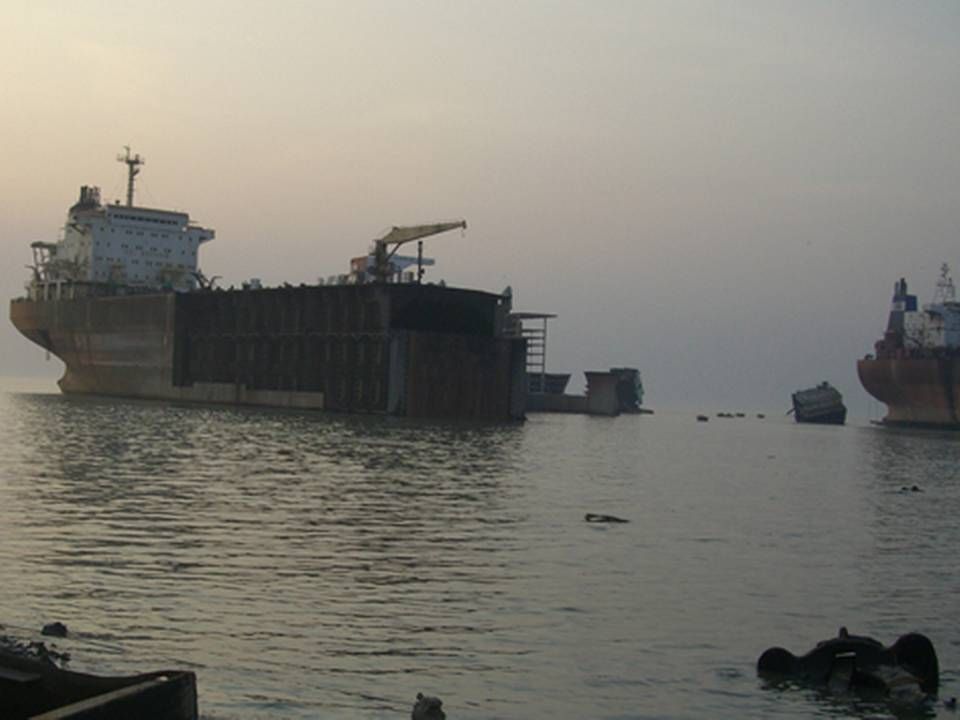Shipowners: We're not lying about scrapping

The shipowners and Carl Schlyter have used the same numbers for calculating how much an EU scrapping fund would cost the shipping companies in additional expenses. That's why it doesn't make sense that Carl Schlyter is accusing the shipowners of using false arguments in their lobbyism, which resulted in the fact that a proposed port levy for ships sailing to, from, and between European ports was voted down last week, a levy that was meant to form the financial basis for a scrapping fund, says Maria Bruun Skipper, chief consultant at the Danish Shipowners' Association, to ShippingWatch.
"We used the numbers that formed the basis of Schlyter's own consequence analysis for this area, as well as for the final proposal, which was 0.05 Euros per GT per port call. We've calculated specific examples based on his numbers and, for instance, we've looked at the expenses for a RoRo ship sailing between European ports, a large ocean going container carrier, and a ferry. And we've used those numbers. But we don't feel one can talk about a fear campaign, rather, it's been a matter of relaying factual, professional information," says Maria Bruun Skipper, following Carl Schlyter's decision to file a complaint about the shipowners and ports' lobbyist groups, charging that they lied about factual matters.
While the shipowners and the ports believe that a port levy would mean massive additional expenses, Carl Schlyter is of a different opinion:
"The consequence analysis showed that 85 percent of everyone would end up paying annual levies or insurances, so the number of payments the ports would have to administrate was quite low. And in my proposal there is a paragraf that provides compensation for them, it turns out to be expensive to administrate," said Carl Schlyter to ShippingWatch on Friday.
European Parliament votes against scrapping levy
Maria Bruun Skipper understands Carl Schlyter's disappointment, though she's puzzled by the accusations.
"It's unusual for a compromise that's been negotiated by the six major party groups and been approved by the Committee to be voted down at the plenary, where the entire Parliament votes. But that doesn't change the fact that the Parliament rejected the proposal. Some of them approached this from a financial point of view, others from an environmental point of view, and the majority decided that it wasn't the right way to do it," she says.
Schlyter: Parliament fooled by lobbyists
In spite of the proposed scrapping fund being voted down by the Parliament, the Coucil of Ministers and the Parliament now have to agree on the rest of the proposed legislation regarding requirements for scrapping.
"We've cleared the worst obstacle, the scrapping fund, but now we have to look at how to move ahead with a policy for scrapping in the EU. The most important thing for us here is at that we stay within the framework of the Hong Kong Convention," says Maria Bruun Skipper.
The Hong Kong Convention is the IMO's proposal for a ship scrapping convention. The convention has been passed, though it has yet to be ratified.
In order to be ratified, it will need the approval of 15 countries with at least 40 percent of the world's tonnage, as well as the support of countries with at least 3 percent of the world's scrapping capacity. The shipowners' association does not have a date for when the convention might come into effect.
Maria Bruun Skipper refers to the fact that the EU Commission, in its original proposal, already stepped beyond the Hong Kong Convention, by, among other things, demanding that scrapping facilities be inspected according to EU standards, and that it be noted exactly what kind of toxic materials are found on the ships - regardless of whether the ships are newbuildings or existing ships.
Related articles
Schlyter: Parliament fooled by lobbyists
For subscribers
Demands for new scrapping rules to take effect in 2015
For subscribers


.JPG)


















